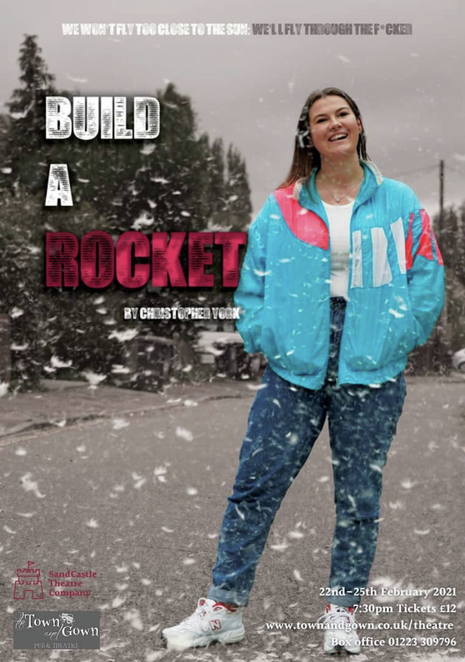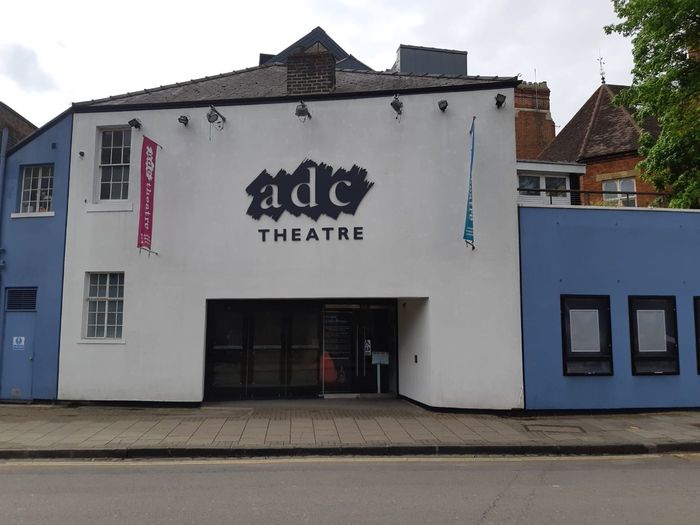Bringing Cambridge Theatre closer to home
Northern accents are few and far between in Cambridge Theatre. Can director Georgie Deri’s and producer Becca Mayer’s new company – Sandcastle Theatre – change this?

Staring at an unfilled box on an unfamiliar form, director Georgie Deri and producer Becca Mayer had a choice: leave the box blank... or make a theatre company. They chose the latter. And why not? They had pitched plays to the ADC together throughout their time as undergraduates, and their shared determination to create work which centres northern voices, along with their solid friendship, made the likelihood of their continued collaboration almost inevitable. All they needed really was a shift in self-perception and a name.
Going from student theatre to applications for professional theatres involves some big changes, but this was only a nominal one; it was a marketing strategy and essentially, they already were a company. But referring to themselves as a theatre company also meant granting themselves permission to see the scope and longevity of their ambitions; to accept, as Georgie frequently reiterated, that they were in it for the long haul.
“[The name Sandcastle Theatre] points towards their unwavering passion to recognise and respect their northern identities, as they endeavour to give space to other northern voices”
And so, we come to obvious question, why Sandcastle? The answer is simple: Georgie’s Gran is brilliant. She suggested the name. It is a combination of a reference to the sandy views which Georgie associates with home back in Bridlington and the latter half of Becca’s beloved Newcastle. This may seem superficial, but it points towards their unwavering passion to recognise and respect their northern identities, as they endeavour to give space to other northern voices.
Georgie explained how arriving in Cambridge made her suddenly aware of the localisation of theatre opportunities to London. Not understanding references to plays or actors left her feeling slightly ostracised. But more than this, she saw herself and other northern actors—like Harriet Wilton, who is performing in their upcoming play—repeatedly struggle to get cast. So, in Easter term of first year, Georgie decided to pitch a show that required a northern accent to the ADC, rather than hoping that their voice would be accepted by others: John Godber’s Shakers: Restirred.

The appraisal of performances, from actors like Harriet Wilton, is evidence that they never lacked the talent to take on lead roles. Georgie recalled being asked questions like “where has Harriet been all this time?”. The excuse of unluckiness dismissively implies that the distribution of opportunities is incidental. This is not true. To blame it on the sad but often referred to reality of nepotism within Cambridge theatre also feels like an easy way out. “Accent is often re-correlated to an identity”, Georgie explained, and casting someone with a northern accent can be perceived as an emphatic character choice—a deviation from the ‘norm’.
It was and is saddening to see the continued use of the northern voice to attach a friendliness or a certain socio-economic status to a character. Or to see people confused when Georgie requested that they perform Jane Eyre with a northern accent despite the fact it is set in the North of England, as their judgement is clouded by the association of classical literature with RP accents.
It takes intentional effort to alter these preconceptions, and Sandcastle Theatre Company has a few ideas. They hope to continue staging northern playwrights’ work, and once they are more established to help champion new, and specifically female, northern voices. They also intend to take classical or renowned plays which are not explicitly set in the North of England and recontextualise into northern cities, to untangle the association of southern accents or settings with a national or universal experience.
“[B]efore she can empower others to use their voice in whatever manner they want, she has to overcome that feeling within herself.”
Particularly, Georgie hopes to recontextualise a Shakespeare play, for the simple reason that it scares her. Her lack of exposure to him, in a way that her London counterparts may not have had, has left her feeling unqualified or unversed, and before she can empower others to use their voice in whatever manner they want, she has to overcome that feeling within herself.
Which brings me to the final greatest distinction between merely putting on a production and forming a theatre company: outreach. Utilising their degrees in Education, English, Drama and The Arts, Georgie and Becca want to engage young people with and empower them through their productions, both to feel less estranged from theatre as a medium, and to learn from the sentiments of their selected plays. Alongside their upcoming production Build a Rocket, they made a workshop pack which considered the notion of building an identity, accumulating in the creation of a devised piece of theatre. Georgie emphasised how she wanted to treat young people as “fellow professionals”, giving them the intellectual credit that they deserve by perceiving them as capable of appreciating theatre. She resents the clichéd, didactic, basically TED-talk form which theatre targeted at school-aged people tends to become.
The evident passion and clear focus regarding how Sandcastle Theatre Company want to affect and engage with their audiences ensures a strong hopefulness about their future. I foresee that they will assist the carving of a better theatre industry even as they more specifically create a space for themselves within it.
 News / Cambridge academics sign open letter criticising research funding changes22 February 2026
News / Cambridge academics sign open letter criticising research funding changes22 February 2026 News / Supporters protest potential vet school closure22 February 2026
News / Supporters protest potential vet school closure22 February 2026 News / Student and union protesters hold ‘Trans Liberation Solidarity Rally’ 24 February 2026
News / Student and union protesters hold ‘Trans Liberation Solidarity Rally’ 24 February 2026 News / Union speakers condemn ‘hateful’ Katie Hopkins speech14 February 2026
News / Union speakers condemn ‘hateful’ Katie Hopkins speech14 February 2026 News / Hundreds of Cambridge academics demand vote on fate of vet course20 February 2026
News / Hundreds of Cambridge academics demand vote on fate of vet course20 February 2026










